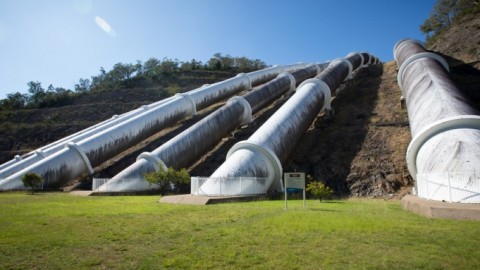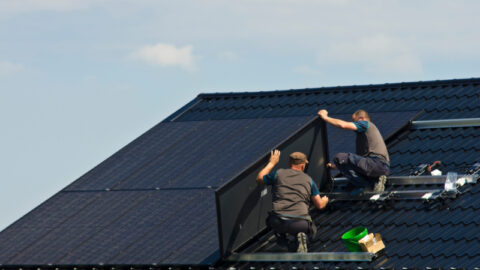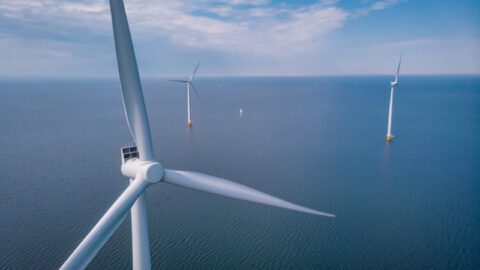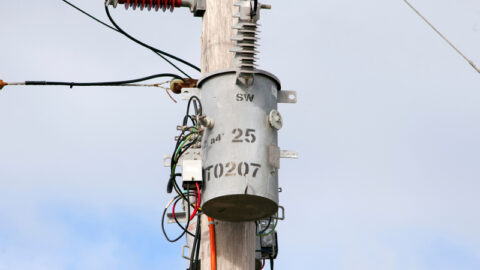The 2023-24 Territory Budget will be making significant investments in a range of projects to help the ACT reach its target of net zero greenhouse gas emissions by 2045, including the Sustainable Household Scheme.
Sustainable Household Scheme
The funding boost for the Scheme will allow more households to participate and takes the total investment to $280 million.
The next phase of the Scheme provides cost of living support for more households by assisting the upgrading of their heating and cooling to fully electric, installing of hot water pumps and electric stove tops, and the purchase of electric vehicles and charging infrastructure, battery storage systems, and ceiling insulation.
To free up capacity for the items above, eligibility for solar panels will be restricted to homeowners who most need government support.
Since September 2021, the Scheme has assisted almost 13,000 households with the up-front costs of making their homes more sustainable, allowing Canberrans to improve the comfort of their homes and reduce their energy bills.
The Scheme was the first of its kind to make energy efficiency upgrades affordable and accessible for households and community organisations, and has been an overwhelming success to date, with $100 million invested in solar since 2021.
The ACT Government will also be partnering with the Commonwealth Government to provide support to Canberrans for the installation of shared rooftop solar on multi-unit apartments.
The $3.6 million investment will incentivise installing rooftop solar on apartment blocks through rebates and concessional loans to body corporates – benefitting apartment tenants and neighbouring residents.
It is anticipated that over 2,100 households will benefit, which could provide a 35 per cent reduction in electricity bills for Canberrans living in apartments.
Multi-dwelling body corporates will be able to access up to $100,000 for rooftop solar, half through a Federal rebate or grant through the Solar Banks initiative and half from an interest-free loan offered by the ACT Government as part of the Sustainable Household Scheme.
Minister for Climate Change and Energy Chris Bowen said the funding will ensure more Australians can access the benefits of cheaper, cleaner energy.
“Solar banks that help provide access to solar for people who have traditionally been unable to access solar, are a key part of the Federal Government’s Powering Australia Plan and will help to deliver cost of living relief to Australian families,” Mr Bowen said.
“We know that renewable energy is the cheapest form of energy.
“This investment in ACT renters and apartment owners, who can’t currently access cleaner, cheaper solar, will ensure that everyone can reap the rewards of the clean energy transformation.
“The Federal Government has also announced 57,000 households in the nation’s capital will be eligible for energy rebates, saving $327 on their power bills.”
ACT Chief Minister, Andrew Barr, said he was pleased to be partnering with the Federal Government on this initiative, as any investment that prioritises sustainability while also helping Canberrans to reduce the cost of their energy bills is a step in the right direction.
“We are committed to continuing to be a global leader in climate action, and this new program supports apartment households to share the benefits of solar.
“It exemplifies our commitment to transitioning to a cleaner and more reliable energy mix towards our goal of reducing emissions to net zero by 2045,” said Mr Barr.
The Federal funding is part of the $101 million commitment to shared solar, to ease energy bills for more than 25,000 Australian households. The 2023-24 Federal Budget also allocated more than $1.7 billion for energy saving upgrades for homes, businesses, social housing and local governments.
Eligibility for the program will align with the solar eligibility for households under the Sustainable Household Scheme, for which 92 per cent of apartments are eligible. Applications will be open in Q3 2023.
Mr Barr said the Territory Government is pleased to be easing the cost-of-living pressures many households are facing, and thanked Canberrans for being on board.
“The huge success of the Scheme to date has shown that households want to play their part towards a more sustainable future,” Mr Barr said.
“Under this next phase of the Scheme, we’re helping Canberrans transition from gas to electricity, by upgrading their electrical appliances. This will have an enormous impact on the sustainability of Canberra households and will also have a positive impact on family budgets.”
EV charging network, Big Battery, Expanded Home Energy Support Program
Further investment in the Big Canberra Battery project will also help the city’s emissions reduction goal through large-scale to neighbourhood-scale batteries to help power ACT homes and businesses.
The Budget broadens the cohort of vulnerable households that can receive rebates through the Home Energy Support Program. From 1 July 2023, homeowners who hold a Health Care Card will be eligible to access the program.
Low-income homeowners with a Pensioner Concession Card, a Veterans Gold Card, and now a Health Care Card, can access a 50 per cent rebate up to $2,500 to install rooftop solar, and an additional 50 per cent rebate up to $2,500 to install energy efficient products.
$70 million for electric public sector operations
Minister for Water, Energy and Emissions Reduction, Shane Rattenbury, said, “The ACT Government will lead by example in the electrification of our city by investing around $70 million in replacing ageing gas appliances with efficient electric appliances at government sites including schools, offices, depots and health facilities.”
The project will replace gas with electric heating and hot water systems across a range of government buildings such as schools, hospitals, emergency services and government offices.
This commitment is expected to stimulate the commercial upgrades industry in Canberra as the Government electrifies its extensive list of properties.
The first electrification upgrades will occur at the Manuka Pool, Weetangera Primary School and the Gungahlin Joint Emergency Services Centre.
“This pioneering program will improve efficiency and cut emissions from government operations contributing to our goal of zero emissions from Government operations by 2040,” Mr Rattenbury said.
“The Home Energy Support Program assists low-income homeowners to make upgrades that reduce energy bills and make their home more comfortable.
“Expanding eligibility to include health care card holders is an important change that will make this support available to more Canberrans to ease cost of living pressures – an especially important change when cost of living pressures are stressing many households.
“Canberrans are embracing the shift to electric vehicles, with now almost 5,000 electric vehicles on our roads. We will continue to support this transition by investing in more public charging stations to make charging more convenient and accessible.
“This investment builds on the delivery of the initial 50 chargers in 2023 and will help achieve our commitment of 180 chargers by 2025.”
















